The Italian Cypress was a long favorite for North Texans. It wasn’t until the major freezes in the Winter of 2016 that we really realized the weaknesses of this tree. While there have been many debates about what caused so many Italian Cypress trees to start turning brown and some even die, all of us in the industry can agree that it all started with the freezes and dramatic temperature fluctuations that December.
After the huge losses that we had a the farm we made the tough decision to take the Italian Cypress off our inventory offerings for good. After lots of research and trials we decided to introduce the Eastern Red Cedar ‘Taylor’ aka Taylor Juniper. Since then this tree has been a wonderful replacement for our customers who love the columar look of Italian Cypress trees, but don’t like the negative traits they have.
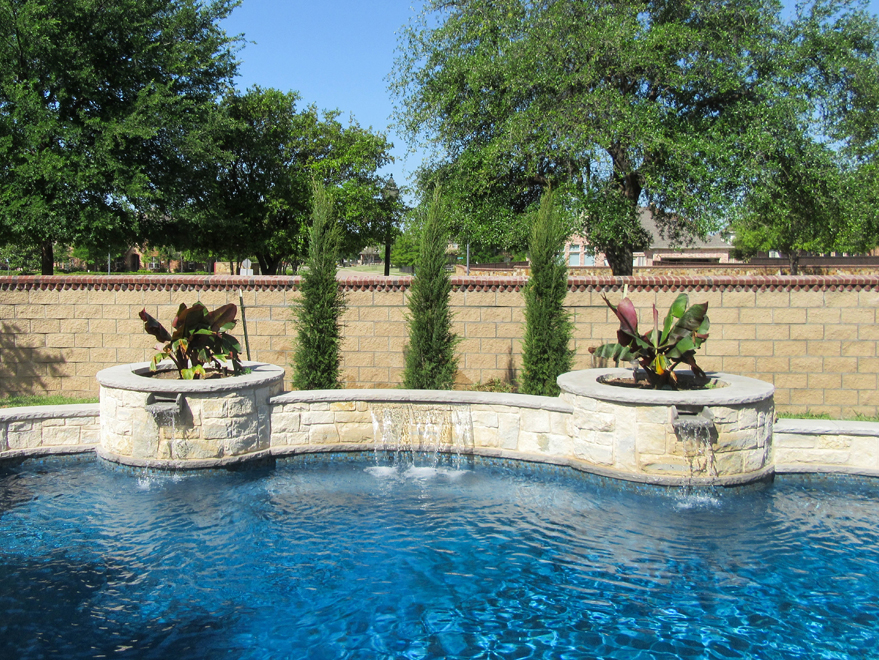
WHAT MAKES THE TAYLOR JUNIPER A BETTER TREE THAN THE ITALIAN CYPRESS?
- More Cold Hardy
- More Drought Tolerant
- More Heat Tolerant
- More Disease Resistant
- Denser Branching
The Taylor Juniper was actually first discovered in Taylor Nebraska, hence it’s namesake. As many know, the weather can be pretty brutally cold in Nebraska, and the Taylor Juniper not only withstands such weather, but thrives in it. We talked with a vendor up North, and they have a hard time keeping this tree stocked up there because it does so well. The Taylors can be planted in zones 3-9, with North Texas falling under zone 8.
Eastern Red Cedars are Native to Texas and do very well in our Texas Summers, therefore the Taylors which are a cultivar of them also get to reap those drought & heat tolerant benefits. After Eastern Red Cedars are watered for about 2 years and the roots have developed then they are able to sustain themselves without weekly waterings. This makes for a more water conscious landscape and responsible landscaping.
Eastern Red Cedars and their cultivars are naturally more disease resistant than the Italian Cypress. For years Italian Cypress trees have been thrust into landscapes throughout Dallas Metroplex because of their unique shape but they have a lot of issues which include: Phytophthora Root Rot, Seridium Canker, Spider Mites and they are susceptible to cold weather. With this introduction of the Taylor Juniper all of those issues are solved while keeping the desired look of an Italian Cypress.
This handsome tree maintains a more dense foliage than the Italian Cypress. The leaves are also a tinge more blue/green than the green Italian Cypress. Most landscapes incorporate Taylor Junipers by planted them as hedges in narrow areas between a pool and fence or as accent pieces flanking doorways. Checkout our online galleries to view different installations using Taylor Junipers.
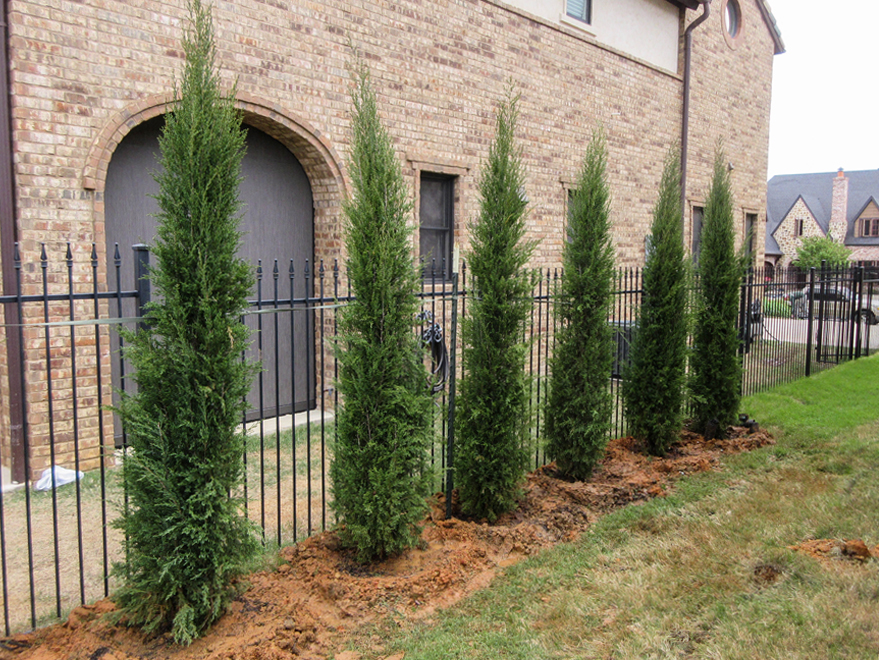
MORE REASONS TO PLANT A TAYLOR JUNIPER
- Evergreen
- Deer Resistant
- Narrow Columar Form
- Makes a Great Privacy Screen
- Perfect for Flanking Entrances
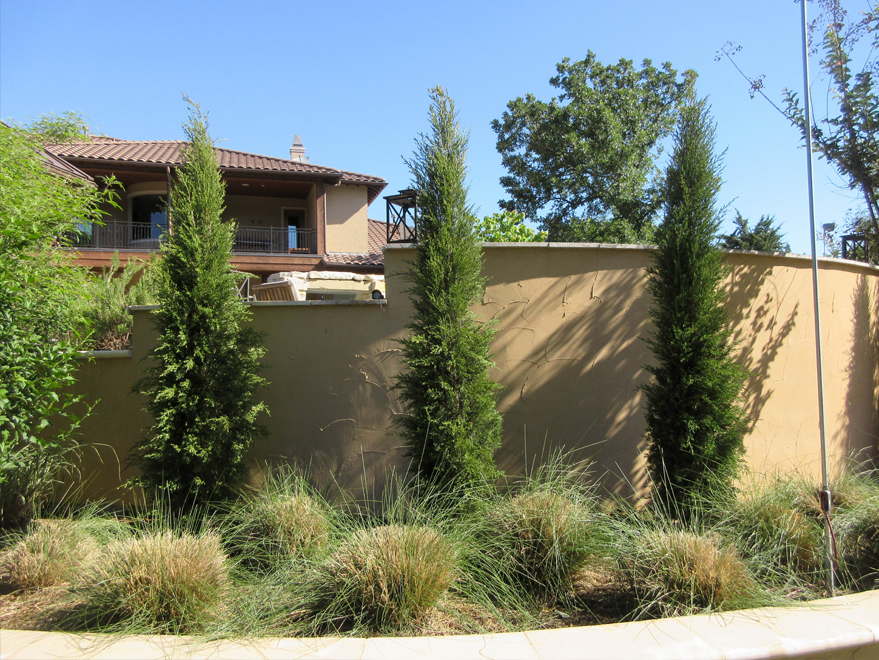
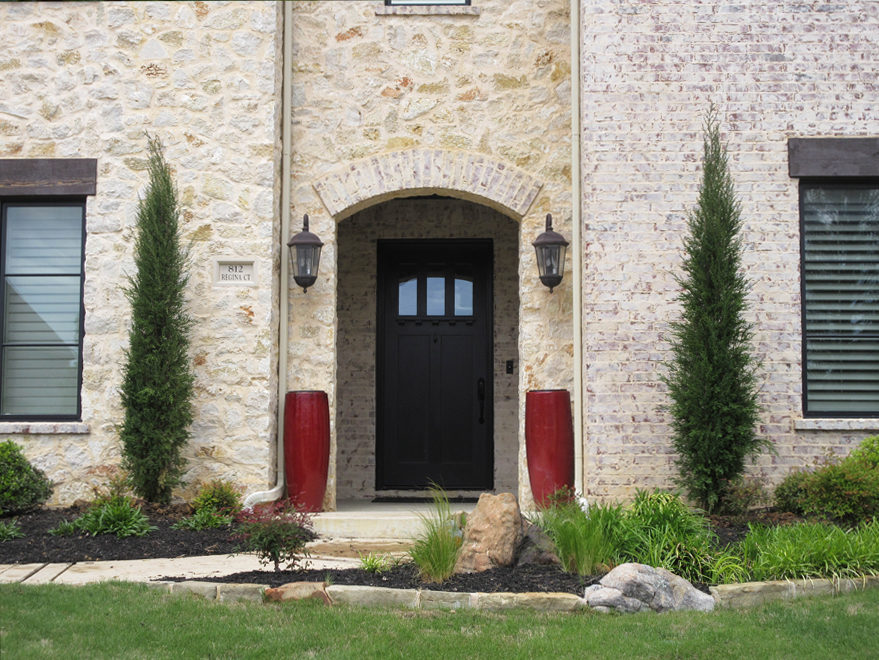
If you live in the Dallas-Fort Worth area and are interested in incorporating Taylor Junipers into your landscape make sure to give us a call. Check out our inventory & pricing page to see our up to date product inventory by clicking here.














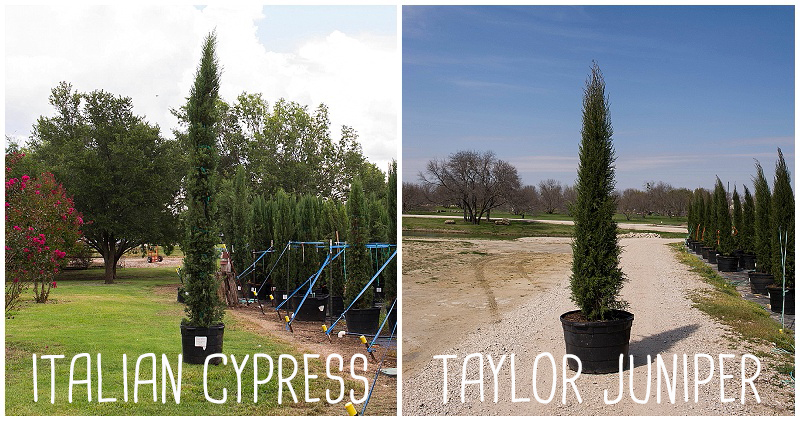
I’m interested in receiving a quote on Taylor juniper.
Hi Hector, thank you for your message. We have a few sizes in stock. View this link and click the pricing tab to see the full specs and prices>> https://www.tree-land.com/tree-finder/tree/eastern-red-cedar-taylor/? . Please contact the office if you have any additional questions. Sales@treelandnursery.com or 972-372-4737. Thanks- Denise
How do you think Taylor Junipers would do in Houston? I have one person telling me the’d Do well and another telling me not to do it.
Hi Heidi, I have never lived outside North Texas, so I am no expert on Houston soils. However, the Taylor is a cultivar of the classic Eastern Red Cedars. So if the classic cedars thrive there, then the Taylors will also. They have all of the amazing qualities of the classic cedar so they are drought tolerant, heat tolerant, and cold hardy. I just don’t know for sure if they love your soils or not.
Do the juniper keep the sharp needle like foliage or does this soften? Do they produce the bluish berries as well? How often should it be trimmed to keep the slender look? Thanks
Hi Susan! Thanks for your questions. The Junipers do have a similar leaf look to the italians but it’s a little softer. The texture on both trees does not change down the road or soften overtime. The Taylor Junipers do get blue berries which adds nice Winter interest to the landscape. The Taylors stay narrow and slender, only getting about 4′ wide at maturity. Only prune if you want them to stay smaller than the mature size. Checkout leaf detail pictures and additional shots of our Taylor Junipers here> https://www.tree-land.com/tree-finder/tree/eastern-red-cedar-taylor/? Please let me know if I can answer anything else for you. – Denise
Hi, can you give me a sense of how messy are the berries to clean up? ie, if the trees are planted next to the pool, how many berries are going to end up in the pool? Thanks!
Hi Erin, thanks for your question. Berries are not bad at all on the Taylors and they disintegrate pretty quickly into the ground once they drop. It’s not something I would even clean up or stress over. That variety is all female so none of the berries will ever sprout off a new tree. – Denise
Where in central Texas are 5” to 6” Taylor junipers sold?
I am sorry but I don’t know of any farm in Central Texas. I also think finding some that large will be very challenging as I have never seen any for sale that large. I hope you find some though as they are excellent trees for Texas. -Denise
What is the maximum height of a mature juniper? Will they grow as tall as Italian cypresses?
Hi Tk, the Taylor Junipers are estimated to have a mature height of 30′ Tall x 4′ Wide. Italians are also estimated to reach 30′ Tall once mature.
Hi
How is the root system of the Taylor Juniper? Can I plant them a few feet away from a concrete driveway? Near a house?
Hi John, the root systems stay smaller as the trees only get around 4′ wide at maturity. Due to the smaller size we have not found any issues planting them near a house or driveway.- Denise
Hi,
Any thought about people who have cedar allergies planting these trees? I like the look, but some in my family have allergies that are sensitive to cedar? Thank you.
Ken
Hi Ken, yes only the male trees cause the allergies. To avoid allergies you can either buy male Eastern Red Cedars or go with some of the cultivars that are all females like the Eastern Red Cedar ‘brodie’ or Eastern Red Cedar ‘taylor’.
Hello. Do you have any experience with Taylor Junipers in Austin? Just lost our Italian Cypress trees in the recent winter storm.
Thank you.
Hi Al, sorry for the slow reply. Trying to get caught up on my replies. The Taylors would do great in Austin since their parent plant is the classic Eastern Red Cedar. The Taylors are just a natural mutation off that plant that was made into it’s own variety after a farmer discovered that one of his cedars stayed really skinny. -Denise
How would they do in Laredo Texas?
Gosh I wish I knew that answer. They are super drought tolerant so it’s worth a try. – Denise
Hi John, I am sorry I missed this message. We don’t deliver to Austin but we have lots of people that have picked up at our farm from there. We have a new crop of Taylors that will be available on 7-30-21 and they are $297+ tax picked up and 6.5-7.5ft tall. If you want some, feel free to preorder online as they always sell out fast. – Denise